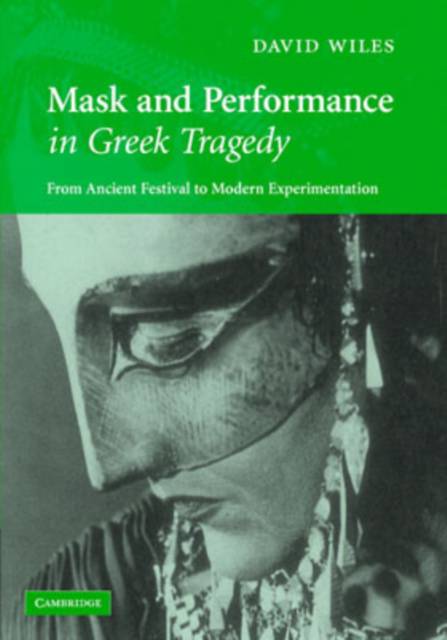
- Afhalen na 1 uur in een winkel met voorraad
- Gratis thuislevering in België vanaf € 30
- Ruim aanbod met 7 miljoen producten
- Afhalen na 1 uur in een winkel met voorraad
- Gratis thuislevering in België vanaf € 30
- Ruim aanbod met 7 miljoen producten
Zoeken
Mask and Performance in Greek Tragedy
From Ancient Festival to Modern Experimentation
David Wiles
Hardcover | Engels
€ 112,45
+ 224 punten
Uitvoering
Omschrijving
Why did Greek actors in the age of Sophocles always wear masks? In this book, first published in 2007, David Wiles provided the first book-length study of this question. He surveys the evidence of vases and other monuments, arguing that they portray masks as part of a process of transformation, and that masks were never seen in the fifth century as autonomous objects. Wiles goes on to examine experiments with the mask in twentieth-century theatre, tracing a tension between the use of masks for possession and for alienation, and he identifies a preference among modern classical scholars for alienation. Wiles declines to distinguish the political aims of Greek tragedy from its religious aims, and concludes that an understanding of the mask allows us to see how Greek acting was simultaneously text-centred and body-centred. This book challenges orthodox views about how theatre relates to ritual, and provides insight into the creative work of the actor.
Specificaties
Betrokkenen
- Auteur(s):
- Uitgeverij:
Inhoud
- Aantal bladzijden:
- 332
- Taal:
- Engels
Eigenschappen
- Productcode (EAN):
- 9780521865227
- Verschijningsdatum:
- 9/08/2007
- Uitvoering:
- Hardcover
- Formaat:
- Genaaid
- Afmetingen:
- 181 mm x 254 mm
- Gewicht:
- 839 g

Alleen bij Standaard Boekhandel
+ 224 punten op je klantenkaart van Standaard Boekhandel
Beoordelingen
We publiceren alleen reviews die voldoen aan de voorwaarden voor reviews. Bekijk onze voorwaarden voor reviews.








